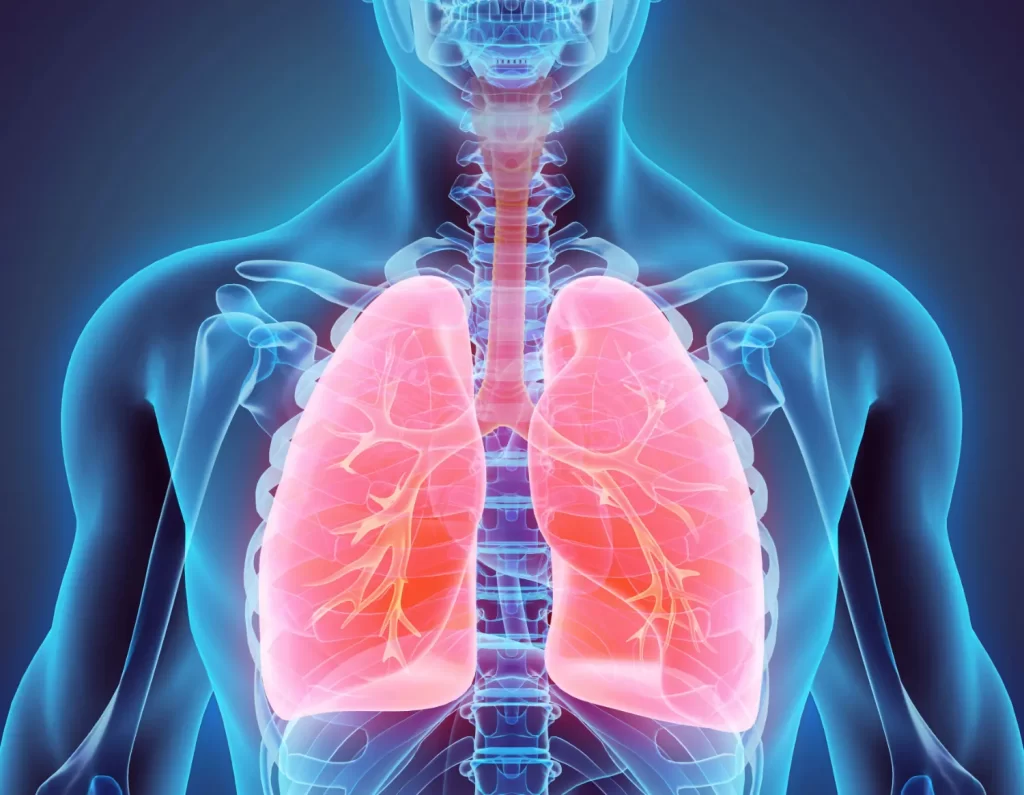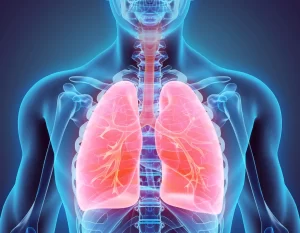
Menopause brings a wave of changes, but one often overlooked area is lung health. Many women experience unexpected respiratory issues like breathlessness, increased asthma symptoms, or a greater risk of lung disease. These changes can be subtle yet impactful, making it essential to support lung function through lifestyle choices, nutrition, and targeted wellness strategies.
Many women are surprised to learn that menopause can impact their breathing and overall lung function. The hormonal shifts that occur during this stage of life can contribute to increased inflammation, reduced lung capacity, and even a higher risk of respiratory conditions.
Estrogen plays a key role in maintaining healthy lung tissue and supporting airway function. As estrogen levels decline, some women may experience shortness of breath, a worsening of asthma symptoms, or even an increased risk of chronic obstructive pulmonary disease (COPD). Studies have shown that lung aging accelerates during menopause, making it even more important to take proactive steps toward maintaining respiratory health.
Making intentional lifestyle changes can significantly improve lung health during menopause. Regular physical activity, mindful breathing exercises, and avoiding environmental toxins can help keep your lungs strong and resilient.
Activities like walking, swimming, and cycling help maintain lung capacity and improve oxygen circulation. Aim for at least 30 minutes of moderate exercise most days of the week.
Techniques like diaphragmatic breathing and pursed-lip breathing can strengthen your lungs and improve oxygen exchange. Yoga and meditation also promote better breathing efficiency.
If you smoke, quitting is the most powerful step you can take for lung health. Additionally, limit exposure to air pollution, secondhand smoke, and strong chemical fumes.
Chronic stress can worsen inflammation in the body, affecting lung function. Prioritizing relaxation techniques like mindfulness, deep breathing, or spending time in nature can support respiratory health.
What you eat plays a crucial role in supporting lung health during menopause. A diet rich in anti-inflammatory foods, essential nutrients, and proper hydration can help keep your respiratory system functioning at its best.
Chronic inflammation can worsen lung function. Incorporate antioxidant-rich foods like berries, leafy greens, turmeric, and nuts to help combat inflammation and support lung tissue.
Found in fatty fish, flaxseeds, and walnuts, omega-3s help reduce airway inflammation and improve lung function.
Drinking enough water keeps mucus in the lungs thin, making it easier to breathe and reducing the risk of respiratory infections. Aim for at least 8 glasses of water daily.
Low levels of vitamin D have been linked to weaker lung function, while magnesium helps relax airway muscles. Sources include fortified dairy, mushrooms, nuts, and seeds.
In addition to a healthy lifestyle and diet, certain supplements and alternative therapies may provide extra support for lung health during menopause. These options can help reduce inflammation, improve respiratory function, and strengthen lung capacity.
This antioxidant supports lung function by thinning mucus and reducing oxidative stress in the airways. It may also help protect against lung damage linked to menopause-related hormonal changes.
A natural flavonoid found in apples, onions, and tea, quercetin has anti-inflammatory and antihistamine properties that may help reduce lung irritation.
Mullein and ginseng are two herbs traditionally used to support respiratory health. Mullein helps clear mucus from the lungs, while ginseng may enhance lung function and reduce inflammation.
Alternative therapies like acupuncture and guided breathwork can help improve oxygen flow, reduce stress, and enhance lung efficiency.
While supplements and alternative therapies can be beneficial, it’s always best to consult a healthcare professional before adding them to your routine.

While many menopause-related lung changes can be managed with lifestyle adjustments, some symptoms may require medical attention. Knowing when to see a doctor can help prevent serious respiratory conditions from developing.
If you notice any of these symptoms, schedule an appointment with your doctor for further evaluation.
Maintaining lung health during menopause is essential for overall well-being and quality of life. Hormonal changes can impact respiratory function, but with the right lifestyle choices, nutrition, and supplements, you can support your lungs and breathe easier.
Key takeaways:
Related Articles










* These statements have not been evaluated by the Food and Drug Administration. This product is not intended to diagnose, treat, cure or prevent any disease.